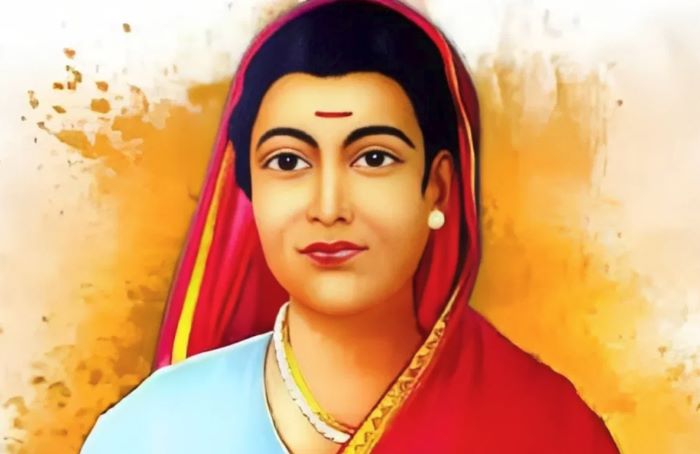THE ASIAN INDEPENDENT UK-

Dr. Shrikant Borkar
“It was a fateful night in the 1860s in Poona, a prominent city in colonial India. A young Brahmin girl, only 14 years old, was frantically running through the jungle. She was lost and heartbroken, carrying so much pain in her heart that tears streamed down her face.
The jungle around her was alive with frightening sounds. Jackals howled in the distance, snakes moved silently in search of prey, and insects filled the thick trees and bushes with their ominous cries. She walked along a small path through the forest, heading toward an abandoned bridge over a river far away from the houses of Poona.
Inside her womb was a baby—conceived from a terrible act of rape. The child seemed to call out to her motherly instincts, begging her to live. But her mind, hardened by the cruelty of the world, was determined to end both her life and the life of the baby. She believed their existence was cursed.
This lonely place seemed like the end of the world, far from the bustling city where the Kokanastha Brahmins patriarchy—the so-called pious rulers of the Peshwa era—lived in comfort, blind to the suffering of their own women folks like her.”
This girl was Kashibai – from a local Brahmin family – victim of a child marriage, widowed at her tender age. Marrying underage girls to old men was a heinous custom among Brahmins. They used to marry girls as young as 6 to 8 years old to men as old as 70-80 yrs old. And once the oldies died the young widows were doomed to cursed life where they were easy prey to their lustful family members or the priest of local temple they use to go to worship in twilight. It was a grave social ill.
Kashibai had been raped by a local Brahmin a few months ago, and she could no longer hide the protruding bump that had grown inside her. Scared of the social stigma, she decided to end her life by jumping into the nearby river.
Determined as she was, Kashibai climbed up onto the railings of the bridge. Just as she was about to leap into the quiet, murderous waters below, a shadow appeared out of nowhere. A strong, masculine hand grabbed her from behind, pulling her back from the edge. The hand belonged to none other than Mahatma Jyotiba Phule, the great social reformer and husband of Savitri Mai Phule.
Phule held her firmly, with voice full of compassion as he spoke:
“My girl, you don’t have to end your life and your baby’s this way. My wife Savitri and I will help you deliver your baby safely. Afterward, we’ll take care of the child at our centre and make sure no one knows about your situation. You will be safe, and we’ll help you find your way back to your family, so that you can live your life without fear of judgment.”
The bridge was a notorious suicide spot—a grim final refuge for many unfortunate Brahmin women, including young pregnant Brahmin widows like Kashibai, who had been driven to despair by the oppressive forces of Brahmin patriarchy. Deeply troubled by this tragic reality, Savitribai Phule urged her husband, the visionary social reformer Jyotirao Phule, to find a solution to this social evil and put an end to the needless loss of innocent lives of Brahmin teenage girls.
In addition to establishing the first school for girls—including those from marginalized “untouchable” communities—the Phule couple founded the first-ever “Baal Hatya Pratibandhak Gruh” (Infanticide Prevention Centre) at their own residence in Ganj Peth, Poona. This initiative aimed to protect and support vulnerable young women and teenage girls, offering them an alternative to the dire circumstances that often led them to such desperate ends.
Moreover, while the legendary Karl Marx was meticulously analyzing and exposing the economic roots of chronic human exploitation from his library, the Phule couple was already taking bold and tangible steps against deeply ingrained social injustices. They organized the first-ever strike of traditional artisans—barbers—against the inhumane orthodox sanatani practice that forced widows to have their hair cut. This cruel custom aimed to make widows appear austere, unattractive, and undesirable, further dehumanizing them in the name of tradition.
January 3, 2025, marked the 194th birth anniversary of one of the greatest founding mothers of modern India, Savitribai Phule (1831–1897). A visionary social reformer, pioneering educationist, and champion of women’s empowerment, Savitribai Phule was a liberator of Indian women—especially the Brahmin women crushed under the Jaggernauth of Brahmin orthodoxy and patriarchy. She courageously fought against the physical assaults, abuses, and injustices inflicted by the contemporary orthodox Vedic Brahmins and Sanatani Hindu oppressive systems of her time.
Her relentless efforts laid the foundation for future generations of Indian women, enabling figures like Indira Gandhi, Vijaya Lakshmi Pandit, Mayawati, Kiran Bedi, Kalpana Chawla, former President Pratibha Patil, and current President Droupadi Murmu to rise, excel, and achieve their fullest potential across all walks of life.
Reducing Savitribai Phule to merely being India’s first female teacher or a poet would be a grave injustice to her legacy. She envisioned an egalitarian Indian society where English served as a language of knowledge, scientific temperament thrived, and gender equality, freedom, fraternity, and equal rights were guaranteed to all—regardless of caste, creed, gender, or religion. Her unparalleled contributions continue to inspire the nation toward these ideals.
It is both indignant and appalling to witness the present-day egregious Brahmins of all hue and colour and Other Backward Classes —across India and the globe—remain largely ungrateful and indifferent to the unparalleled contributions of the Phule couple. Their relentless efforts for the upliftment of oppressed Brahmin women and marginalized communities, which transformed the lives of countless Brahmin women ancestors, are neither celebrated nor acknowledged as they deserve. Instead, some rabid malicious Poona Brahmin male neanderthals keep trying to undermine and vilify the legacy of these great humanitarians, Savitribai Phule and Jyotirao Phule.
Educated by the Scottish Evangelical Mission in central India, the Phules were profoundly influenced by the liberal education and humane values imparted to them. Motivated by these ideals, they committed themselves to the cause of social justice, striving tirelessly to uplift Indian society far beyond Maharashtra. Their noble and selfless work inspired great men-such as Rajarshi Shahu Maharaj, the visionary King of Kolhapur, and Dr. B. R. Ambedkar, one of the founding fathers of modern India and the architect of the India constitution.
Dr. Ambedkar’s efforts to enshrine the Phule couple’s egalitarian and democratic philosophy in the Indian Constitution were monumental. His drafting of the Hindu Code Bill, which proclaimed equal and special rights for women, became a cornerstone for gender justice—often referred to as the Magna Carta of Indian Women’s Rights. It sought to uplift “half of India”—a population long neglected and oppressed.
However, the introduction of the Hindu Code Bill faced stiff resistance even from some of the so-called enlightened leaders of free India, including caste Brahmin socialist Jawaharlal Nehru, caste Kayastha Rajendra Prasad, and farming community Shudra varna Vallabhbhai Patel, as well as sections of the English-educated orthodox caste Hindus and their spiritual leader Shankaracharya. The reluctance of these groups to accept equal rights for women ultimately led Dr. Ambedkar to resign in protest from Nehru’s Cabinet—a testament to the deeply ingrained patriarchy and caste-based biases of the time.
India is a relatively young nation, and nations are built in the minds and hearts of their people. Nation-building is a monumental task—one that demands immense patience, honesty, and unwavering intellectual integrity. This moment calls for reflection and introspection—conducted with a calm and rational perspective—rather than covering festering and deep-rooted wounds with the fragrant, colourful bandages of a glorified past and a superficial sense of divine nostalgia. True progress requires confronting uncomfortable truths rather than masking them with feel-good narratives that rarely hold up to scrutiny.
Dr. Shrikant Borkar
BARD Fellow @ School of Oriental and African Studies (SOAS University of London)
Visiting Tutor
Department of Law and Criminology
School of Law and Social Sciences
Royal Holloway, University of London
United Kingdom








